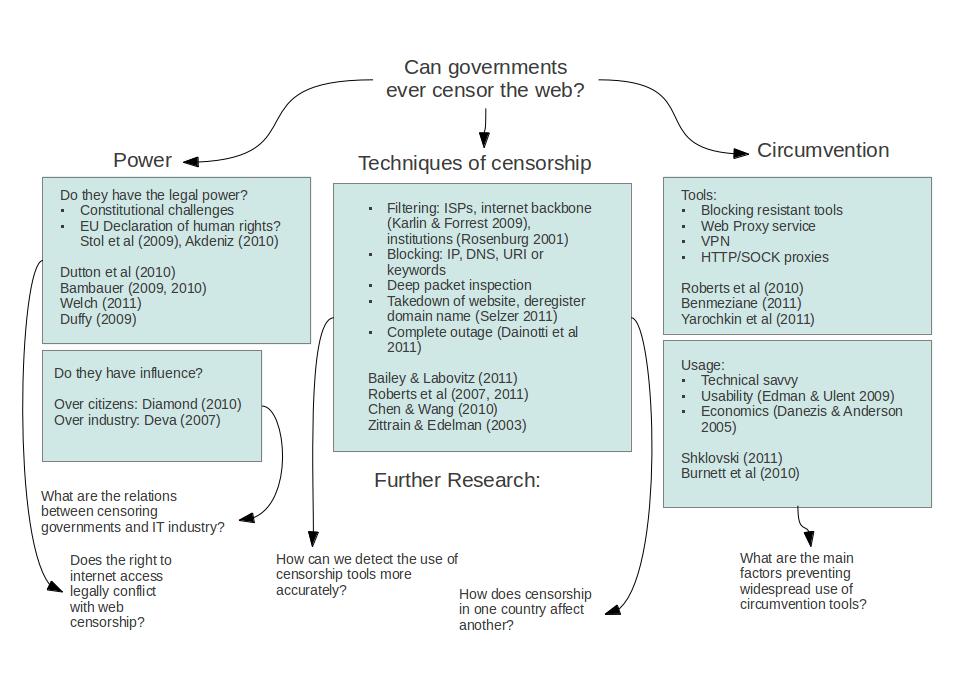I heard last week that UK internet service providers are going to begin censoring file-sharing link aggregator The Pirate Bay. I don’t use TPB, but I went straight to the site to see if it was still accessible (many others evidently did the same, causing an unprecedented traffic spike). As it happens, my broadband provider (BT) haven’t yet decided whether to join in the censorship. So I probably have a little while left to note down the IP address or install appropriate circumvention tools (such as this browser plugin), if I ever want to access TPB in future.
Last year I put together a review and map of some of the academic literature in this area, addressing the question of how effectively governments can censor the web. It is by no means comprehensive (leaving out some important commentators in the area such as Rebecca MacKinnon), but I’ve tried to include a representative sample of the various disciplines I think are needed to answer this question. It doesn’t just boil down to a technical question about tools for censorship and circumvention – we have as much to learn from sociological, legal, political and economic research. I break the issue down into three factors
• Technical tools and infrastructure – what do governments have at their disposal?
• Circumvention – how successful and widespread are citizens attempts?
• Limitations on government power – both constitutional and influence over private industry
I’ve represented the research relevant to each factor in the map below:
You can read the rest of the report here (PDF)
I’m also interested in trying out OONI-probe, a new tool that anyone can deploy to detect censorship on the ground. In addition to the various annual reports (from the Open Net Initiative, HerdictWeb, and others) this should prove an invaluable tool for tracking online censorship in future.
